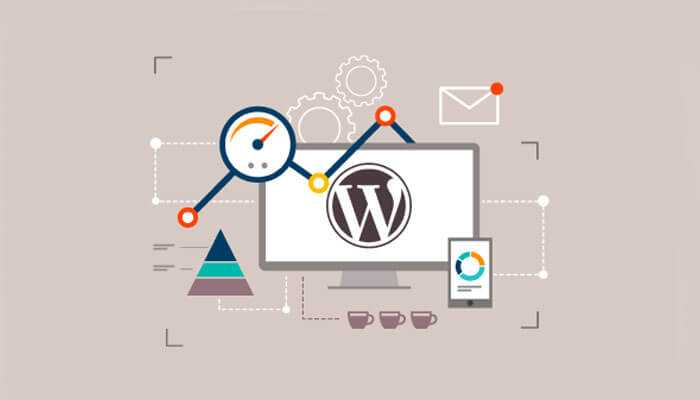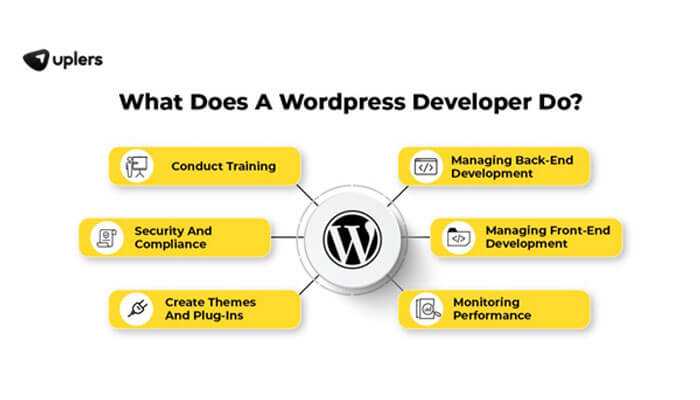In today’s fast-paced online world, how fast your website works can make or break the experience for users. People want things quick, and if your site takes forever to load, you might lose them. That’s where WordPress developers come in. If you’re using WordPress – the go-to system for managing web content – these developers can be your heroes, making sure your site runs super smooth. So, when you’re ready to enhance your website speed and performance, it’s time to consider hiring WordPress developers. Let’s check out X ways they make your website faster and better.
Here are 10 ways WordPress Developer Makes the Faster and Better
Now, let’s delve into the specific strategies that WordPress developers employ to boost the speed and performance of your website:
1. Optimizing Code for Efficiency
One of the primary responsibilities of a WordPress developer is to optimize the code that powers your website. Inefficiently crafted code has the potential to impede the loading speed of a website. A skilled developer can streamline the codebase, removing unnecessary elements, and ensuring that the code is efficient and optimized for speed. This optimization not only improves website performance but also contributes to a better overall user experience.
2. Choosing Lightweight Themes and Plugins
The WordPress ecosystem boasts a vast array of themes and plugins that provide functionality and aesthetics to websites. However, not all themes and plugins are created equal, and some can be resource-intensive, impacting site speed. WordPress developers can help by selecting lightweight themes and plugins that maintain a balance between functionality and performance. Customized solutions can also be developed to meet specific requirements without compromising speed.
3. Implementing Browser Caching
Browser caching is a technique that allows frequently accessed resources, such as images, stylesheets, and scripts, to be stored on a user’s device. This reduces the need to reload these resources every time a visitor returns to the site, resulting in faster load times. WordPress developers can configure and implement browser caching settings, optimizing the delivery of content and improving the overall speed of the website.
4. Optimizing Images and Media Files
High-resolution images and large media files are common culprits behind slow-loading websites. WordPress developers can employ various techniques to optimize images without sacrificing quality, such as compressing images, using responsive images, and lazy loading. These optimizations not only reduce the overall size of web pages but also contribute to faster loading times, particularly on mobile devices with slower network connections.
5. Utilizing Content Delivery Networks (CDNs)
Content Delivery Networks distribute website content across multiple servers worldwide, ensuring that users can access resources from a server geographically closer to them. This minimizes latency and expedites the loading duration of web pages. WordPress developers can integrate CDNs seamlessly into your website, enhancing its speed and performance on a global scale.
6. Database Optimization
WordPress depends on a database to store and retrieve crucial information, including content, configurations, and other essential data. Over time, databases can become cluttered with unnecessary information, leading to slower query times and overall performance degradation. WordPress developers can optimize databases by cleaning up redundant data, optimizing database tables, and implementing efficient indexing, resulting in faster data retrieval and improved website speed.
7. Minifying CSS and JavaScript Files
Minification entails the elimination of superfluous elements, such as white spaces and comments, from CSS and JavaScript files. This reduces the file size, making it quicker to load. WordPress developers can implement tools and techniques to automatically minify these files, enhancing the website’s speed without compromising functionality.
8. Regular Performance Audits and Monitoring
Continuous monitoring and regular performance audits are crucial for maintaining optimal website speed. WordPress developers can set up tools and systems to monitor website performance, identify bottlenecks, and address issues promptly. Proactive measures, such as regular audits and performance testing, help ensure that your website remains fast and responsive as it evolves over time.
9. Implementing Server-side Caching
Server-side caching involves storing static copies of dynamically generated web pages. When a user requests a page, the server can deliver the cached version instead of regenerating the entire page. WordPress developers can configure server-side caching solutions, such as Varnish or Redis, to reduce server load and speed up the delivery of web pages.
10. Optimizing for Mobile Performance
With an increasing number of users accessing websites on mobile devices, optimizing for mobile performance is essential. WordPress developers can implement responsive design principles, optimize images for mobile viewing, and ensure that the website functions seamlessly on various devices and screen sizes. This not only improves user experience but also positively impacts search engine rankings, as mobile-friendliness is a key factor in search algorithms.
Bottom Line
So there you have it – 10 ways WordPress developers can turn your website into a fast, sleek, and user-friendly digital wonderland. They’re like the behind-the-scenes heroes, making sure your online presence is not just good but fantastic. With a website that loads like lightning, you’re all set to win in the fast and competitive world of the internet.





